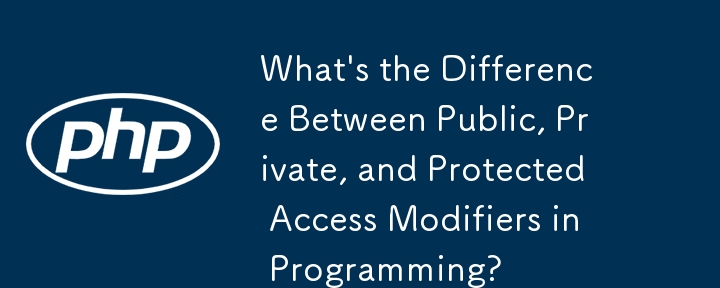

Understanding the Distinction between Public, Private, and Protected Access Levels
Access modifiers in programming languages control the visibility and accessibility of variables, methods, and classes. In object-oriented programming, understanding the distinction between public, private, and protected access levels is crucial for managing the interdependencies and encapsulation of your code.
public
Variables or methods declared as public are accessible from any context within the program. This means that they can be referenced and used by any class, instance, or external function. Public access is often used for components that need to be shared among different parts of the program.
private
Private variables and methods are only accessible within the class in which they are defined. They cannot be accessed directly by any other code outside of that class. This level of access is ideal for variables and methods that should be used internally by the class and should not be manipulated by external code.
protected
Protected access is similar to private access, except that protected variables and methods can also be accessed by child classes that inherit from the parent class. This means that child classes can modify or extend the protected members of the parent class. Protected access is useful for components that should be accessible to child classes but not to external code.
Example Usage
Consider the following code example:
class MyClass {
// Public member accessible from anywhere
public $publicVariable;
// Private member accessible only within the class
private $privateVariable;
// Protected member accessible within the class and child classes
protected $protectedVariable;
}In this example, $publicVariable can be accessed from any context, $privateVariable can only be accessed within the MyClass class, and $protectedVariable can be accessed within the MyClass class and any child classes that inherit from it.
The above is the detailed content of What's the Difference Between Public, Private, and Protected Access Modifiers in Programming?. For more information, please follow other related articles on the PHP Chinese website!




